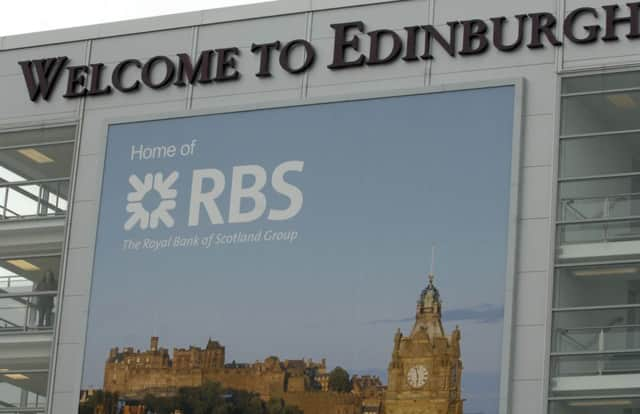Comment: Independence relief rally | US splits?


The giveaway is that trading volumes in RBS and utilities like SSE were double a normal full day’s average, in the hours after the No vote. Do I detect a bit of profit taking by investors unwinding safe bets?
Ditto with the currency markets. We were treated to doom and gloom predictions that a Yes vote meant a run on the pound. I even heard one currency trader solemnly avow on Radio 4 that a Yes vote would trigger a “10 per cent trade off” on sterling. Cue lots of lucrative hedge trading.
Advertisement
Hide AdAdvertisement
Hide AdIn truth, sterling began a power climb against the dollar last October, as the UK economy improved. It hit $1.72 in mid-July, causing the CBI to complain the high pound was hurting exports. Then a slide began – before the markets caught jitters about the Scottish referendum. The cause of the sell-off was on the other side of the Atlantic, where the US economy had shaken off its winter stumble. In addition, the Fed was at last throttling back on bond purchases, heralding a rate rise. No surprise sterling lost 5 cents.
Then came that infamous poll which showed Yes ahead for the first time. The poll also told traders that straight directional bets on sterling were off the table. However, the result was far from panic. Rather we saw the standard response of betting both ways, and laying off the odds.
Hedge funds bought protection in the form of options. Crucially, investors were able to buy protection at much cheaper levels than standard, because market volatility had been so low till then. This protection has since jumped in value as volatility levels have risen, delivering more gains.
At its weakest this month, sterling was still stronger than last year – hardly a sign the markets really feared a Salmond triumph. Conversely, sterling’s post-referendum rebound has had a negative impact on UK blue chips, which generate 75 per cent of their sales abroad. Put another way, that No vote just reduced the share value of Rio Tinto and BHP Billiton. Just wait till the Bank of England puts up interest rates.
Idea of going it alone in the Lone Star state
A QUARTER of all Americans want their state to secede from the Union, according to a recent poll. A fifth of Texans want the Lone Star state to go it alone. Texas, the world’s 15th largest economy, is the only sovereign nation to join the Union voluntarily – it once had embassies in London and Paris.
So the vogue for smaller states may be more than a passing fancy brought on by the Scottish referendum. It could be an inevitable consequence of globalisation and the internet making big, bureaucratic states obsolete. After all, the markets are comfortable with Hong Kong, Singapore, and Luxemburg as financial centres.
Mind you, honesty requires I tell you that Texas voted to join the US to get its public debts paid off. They eventually were under President Teddy Roosevelt – 70 years later.